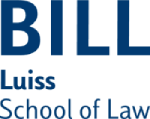A training program that brings design thinking to field of law.
Legal design is the application of human-centered design to the world of law, to make legal systems and services more human-centered, usable, and satisfying. Legal design is a way of assessing and creating legal services, with a focus on how usable, useful, and engaging these services are.
There are few examples worldwide. One is the Stanford legal design thinking program of the Stanford D.School. The other is the Hasso-Plattner-Institut D-School. The third example is the Luiss LabGov.City legal clinic which has been applying design thinking to the legal field since 2012.
The executive program will be initiated through one of the LabGov open innovation and experimentalist research projects applying the Co-City legal design methodology to the housing sector in 3 cities in Italy to co-design an innovation partnership contract in cooperation with Federcasa, the Italian coalition of public and social housing agencies.


